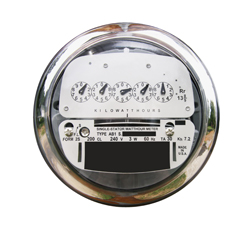Setting the standard for smart meters
A smart electricity grid is one that uses information and communication technologies (ICT) to improve the production and distribution of electricity. It employs two-way communication and automation technology to make significant improvements in energy efficiency. However, there is problem of interoperability among smart multi-metering systems, preventing their large-scale adoption. Network operators and other stakeholders lack the means to guarantee that the systems and devices that different manufacturers produce can all work together. The main objective of the EU-funded 'Open public extended network metering' (OPEN METER) project was to specify a comprehensive set of open and public standards for building a new smart multi-metering infrastructure. This network for multi-functional advanced metering would not only support electricity but gas, water and heat metering too. When European consumers can see how much energy they are using in real-time they can better control their energy consumption. Using less energy means lower electricity bills; smart metering systems make this possible. Today, only 10 % of EU households have some type of smart meter installed. Where economically viable, 80 % of all electricity meters in the EU will have to be replaced by smart meters by 2020. Initially, the project analysed the market requirements and regulatory issues, and evaluated the current and emerging technologies and standards. Then it identified and filled the knowledge gaps, tested the solutions developed, and drafted and proposed the necessary standards to relevant standardisation bodies. Although the interoperability and standardisation of technologies are recognised as key to the success of smart grids, other factors must be considered too. Substantial investments in infrastructure are required if we are to reap the economic and environmental benefits of modernising our energy production and distribution.



